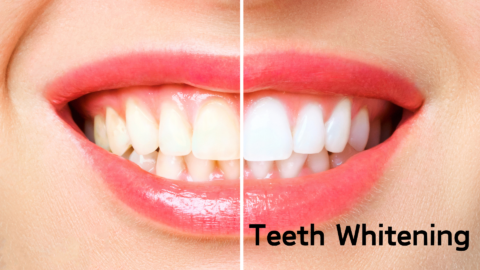The first visit to the dentist can be a daunting experience, both for children and their parents. However, understanding the essentials of children’s dental care is critical. This is to ensure that little ones maintain healthy teeth and develop good habits that last a lifetime.
Taking proactive steps to care for your child’s teeth can prevent cavities. This can instill a lifelong love of dental hygiene in your family. What if making that first visit less intimidating could pave the way for a healthier smile?
In this comprehensive guide, we will explore effective strategies for children’s dental care, from the first tooth to their teenage years. This will ensure that your child’s dental health remains a priority.
Understanding Children’s Dental Care Basics
Effective children’s dental care starts even before the first tooth appears. Oral care should begin when your child is an infant.
This includes wiping their gums with a soft cloth to remove bacteria that can lead to cavities. Once the first tooth arrives, it’s important to introduce an appropriate toothbrush with a tiny amount of fluoride toothpaste.
Many parents underestimate the importance of dental care for infants and toddlers. Early intervention is crucial. Children can get cavities as soon as teeth start erupting.
It’s recommended to schedule the first dental visit by the age of one or when their first tooth appears. This early check-up helps to identify any potential issues. This instills a sense of comfort around dental visits.
Daily Dental Hygiene Routine
Establishing a daily dental hygiene routine lays the foundation for excellent dental health in children. Encourage your child to brush at least twice a day. Once in the morning and once before bed.
A successful daily dental routine includes using fluoride toothpaste and brushing for two minutes to clean all tooth surfaces. Flossing should begin when two teeth touch, typically around age 2 or 3. Additionally, rinsing with water or a fluoride mouthwash, if recommended by your dentist, helps maintain oral health.
Additionally, make it fun! Utilize songs or games to keep your child engaged during their brushing sessions. This will turn it into a rewarding experience rather than a chore.
The Role of Diet in Dental Health
What children eat significantly impacts their dental health. Sugary snacks and drinks increase the risk of cavities and tooth decay. Providing a balanced diet rich in calcium, phosphorus, and vitamins is essential for strong teeth.
Encourage your child to eat:
- Fruits and vegetables
- Dairy products
- Whole grains
- Lean proteins
Avoid frequent snacking on sugary foods and drinks. If your child has sugary snacks, it’s crucial to schedule these treats with meals instead of throughout the day. This minimizes the time teeth are exposed to sugar.
The Importance of Dental Check-Ups
Regular check-ups with a trusted pediatric dentist are vital to monitor your child’s dental health. Children should visit the dentist every six months, or as recommended by their dentist. This routine helps in the early detection of cavities and other dental issues before they escalate.
During these visits, the dentist will perform an examination, cleaning, and apply fluoride varnish. Some families may seek the opinion of the best pediatric dentist in their area for specialized care and advice on children’s dental needs. This ensures that your child receives the best possible guidance at every stage of their development.
Addressing Common Dental Issues
Even with diligent care, dental issues can arise. Here are several common problems and their solutions:
Cavities
Cavities occur when plaque builds up on teeth. Regular brushing, flossing, and dental visits play crucial roles in prevention. If a cavity forms, a dentist will typically recommend fluoride treatments or fillings based on the severity.
Bad Breath
Persistent bad breath can result from poor dental hygiene or conditions like dry mouth. Teaching your child to brush and floss regularly can help address this issue. If bad breath continues, consult with their dentist.
Teeth Grinding
Teeth grinding is common among children, especially during sleep. If it’s severe, your dentist may suggest a mouthguard. Monitoring stress levels and ensuring your child has a calming bedtime routine can also be beneficial.
Promoting Positive Dental Experiences
Fostering positive experiences around dental visits can help reduce anxiety and fear in children. Setting a good example by following your own dental care routine and discussing what to expect during visits without instilling fear can make a significant difference.
Involving children in the process, such as letting them pick their toothbrush or toothpaste, and offering rewards or praise for good behavior during visits can further enhance their experience. Creating a fun and engaging atmosphere helps children view dental care as an essential and positive part of their lives.
Encouraging Good Habits in Adolescence
As children transition into their teenage years, instilling good dental habits is just as crucial. The onset of orthodontic treatment, such as braces, can significantly impact their dental care routine. Encourage your teen to maintain excellent oral hygiene and continue regular dental check-ups.
Adolescents should also be aware of the impact of lifestyle choices, such as smoking or sugary drinks, on their oral health. Keeping lines of communication open about dental health will support them in making informed choices.
The Benefits of Fluoride
Fluoride is a natural mineral that enhances children’s dental care by playing a vital role in preventing cavities. Fluoride treatments are often administered during dental visits. It can be found in various dental care products.
Fluoride strengthens enamel, making teeth more resistant to decay. Parents should ensure that their children are getting the right amount of fluoride. Using fluoridated toothpaste and considering additional treatments can significantly reduce the risk of cavities.
Orthodontics
The journey to a bright smile might include orthodontic treatment for some children. Early evaluation typically occurs around age 7. This assessment can determine the best time to begin treatment.
Orthodontics plays a significant role in improving the alignment of teeth. This not only enhances aesthetics but also promotes better oral function and hygiene.
If braces or aligners are prescribed, maintaining oral care practices is essential. This is to avoid issues like tooth decay and gum disease.
Building Lifelong Smiles
Maintaining children’s dental care is a marathon, not a sprint. From infancy through adolescence, instilling healthy habits ensures your child grows up with a radiant smile, free from cavities and dental problems.
By following the practices outlined in this guide, you can help your child enjoy a lifetime of good dental health. So prioritize regular check-ups and foster positive dental experiences. Lastly, educate about proper hygiene practices.
Start building those lifelong smiles today!
For more oral health tips, check out our blog posts.





